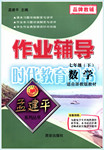题目内容
The voyages of travellers before the 17th century show that they were not ________ the sea even though they didn’t have modern navigational aids.
A. at the expense of B. at the risk of C. in the way of D. at the mercy of

 作业辅导系列答案
作业辅导系列答案Eric and Doris King Turner are packing their bags for New Zealand. They're busy deciding what to pack and what to leave behind in Britain and are making plans to extend their new home in Nelson. Doris is looking forward to getting the garden into shape and Eric has his heart set on a spot of fly fishing. The difference is that Eric is 102, Doris is 87. Eric thinks he's Britain's oldest emigrant.
In January next year Eric King Turner and his wife of 12 years will wave goodbye to their neighbors, and set sail from Southampton on the voyage of a lifetime. The ocean liner (远洋客轮)Saga Rose will take six weeks to get to Auckland and the couple are expecting a red-carpet welcome from family.
Doris was born in New Zealand but gave up her homeland when the couple met and married in the late 1990s. But New Zealand is close to both their hearts and the attraction of family and friends, and the good fishing helped to persuade them to move.
Doris, who has five children and nine grandchildren, supported her husband's application to settle in New Zealand. The paperwork took five months. Eric says, "We not only had to produce a marriage certificate(证书) but we had to produce evidence that we were in a long and stable relationship!" He also said he was not asked about his age but had to show that he could support himself financially (财政上) in New Zealand.
"I like New Zealand. The way of life is very much the same as it is here but it is not so crowded." His wife has always been “a little bit homesick” but has never complained. Now the couple are in the middle of the task of sorting out possessions and selling their flat.
1.Which of the following statements is TRUE according to the passage?
|
A.They decided to leave all the things behind in Britain. |
|
B.The wife always complained about the life in Britain. |
|
C.The couple will set up their new home in Nelson. |
|
D.Doris and Eric will go to New Zealand to hold the wedding. |
2.The underlined word "emigrant" in Paragraph 1 probably refers to a person who___.
|
A.lives in a country forever |
B.moves from one place to settle in another |
|
C.travels around the world |
D.visits many places in a country |
3.What makes the couple's move to New Zealand special?
|
A.Their age. |
B.The red carpet. |
|
C.The ocean liner Saga Rose. |
D.Their marriage certificate. |
4.The best title of the passage may be .
|
A.Better late than never |
|
B.Eric and Doris King-Turner are packing their bags |
|
C.To leave or not to leave, that's the problem |
|
D.Eric, 102, leaves Britain with his wife |